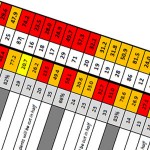Progressive Policies Hurt Working People
Kevin Williamson is on a roll, lately:
Progressives argue that we need deeper government involvement in the economy in order to assuage the ill effects of economic inequality. But, as Joel Kotkin points out, inequality is the most pronounced in places where progressives dominate: New York City, San Francisco, Los Angeles, Chicago. The more egalitarian cities are embedded in considerably more conservative metropolitan areas in conservative states. “Part of the difference,” Mr. Kotkin writes, “is the strong growth of higher-paid, blue-collar jobs in places like Houston, Oklahoma City, Salt Lake, and Dallas compared to rapidly de-industrializing locales such as New York, San Francisco, Chicago, and Los Angeles. Even Richard Florida, the guru of the ‘creative class,’ has admitted that the strongest growth in mid-income jobs has been concentrated in red-state metros such as Salt Lake City, Houston, Dallas, Austin, and Nashville. Some of this reflects a history of later industrialization but other policies — often mandated by the state — encourage mid-income growth, for example, by not imposing high energy prices with subsidies for renewables, or restricting housing growth in the periphery. Cities like Houston may seem blue in many ways but follow local policies largely indistinguishable from mainstream Republicans elsewhere.” In Detroit, Chicago, and Philadelphia, African Americans earn barely half of what whites earn — and in San Francisco, African Americans earn less than half of what whites earn. Hispanics in Boston earn 50 percent of what whites make; but it is 84 percent in Riverside County, Calif., a traditional Republican stronghold (it holds the distinction of being one of only two West Coast counties to have gone for Hoover over FDR and is Duncan Hunter’s turf), and the figures are comparable in places such as Phoenix and Miami.
As in many other recent political arguments, Rhode Island offers an excellent test case. As I’ve long been pointing out, the group that is struggling and leaving Rhode Island is the “productive class,” those people who are striving to transform their labor into money and comfort. The rich are insulated and the disadvantaged are well served, relative to other places. Meanwhile, the insider culture (which includes government unions) creates a path to the middle and upper-middle classes for people willing to play along, but at the expense of the working and lower-middle classes.


